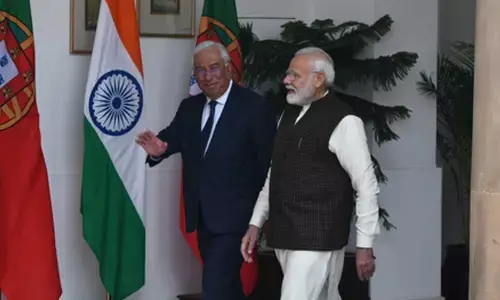Onions: When will politicians wise up?

Onions: When will politicians wise up. Onions are a staple food in India. Part of the base for many of the best-known dishes in the nation’s cuisine, they are also an essential component in the diet of poor families who cannot afford pricier vegetables.
 ‘INCREDIBLE India’ is a slogan promoting tourism in India. For many of the country’s citizens, it depicts reality quite accurately. India’s economic life is rich in incredible phenomena – and even some that are cause for incredulity, writes World Review expert Barun S Mitra
‘INCREDIBLE India’ is a slogan promoting tourism in India. For many of the country’s citizens, it depicts reality quite accurately. India’s economic life is rich in incredible phenomena – and even some that are cause for incredulity, writes World Review expert Barun S Mitra
Is there any other place where elections are decided by the price of onions? In how many countries do governments impose restrictions on domestic shipments and exports of onions? Which regimes in the world are ruthless enough to criminally prosecute vegetable traders for onion hoarding?
Where else does one encounter ‘fair price’ government-run shops peddling onions and setting limits on the quantities purchased? Or find farmers in one part of the country engaging in distress sales of onions, while simultaneously, in another region, consumers bitterly complain about sky-high onion prices?
Onions are a staple food in India. Part of the base for many of the best-known dishes in the nation’s cuisine, they are also an essential component in the diet of poor families who cannot afford pricier vegetables. Add to this the fact that retail onion prices can fluctuate wildly, even by 500 per cent in the course of a few weeks, and it becomes clear why most folks are keenly aware of how much onions cost.
In a democracy where almost 50 per cent of average household expenditure goes towards buying food and where poor citizens turn out to vote in large numbers it also means that food price inflation is bad for politicians. Almost every opinion poll in the country has found rising food prices among voters’ top concerns.
In 1998, the Indian National Congress (Congress) party humbled its arch-rival, the BJP in a New Delhi assembly election by harnessing popular anger over price hikes of the bulb vegetable. The onion’s political role was cemented in 2013, in another New Delhi assembly election, when the Congress party’s 15-year rule ended over high onion prices.
However, onions are more than a symbol of inflation and general dissatisfaction with the ruling regime. The way that the onion saga keeps playing out in Indian politics also points to a fundamental structural problem. Over the past two decades, almost every Indian finance minister has argued that the country’s food price inflation surges could be tamed by improving agricultural productivity and strengthening supply chains.
India’s food processing industry is underdeveloped and storage facilities are inadequate. An estimated 15-20 per cent of harvested onions rot in storage and a similar quantity is lost on the farm, even before the produce reaches market. Consequently, onion prices are highly volatile, easily affected by weather and other factors.
Unfortunately, this is not a story of onions alone. Virtually every sector of the Indian economy is afflicted by a mismatch of supply and demand. India’s electric power generating system provides a good example. Some provinces claim to have a power surplus, other are still experiencing blackouts. In 2011, over a third of Indian households did not have electricity.
What stunts power generation is a weak client base – not enough Indian households are capable of paying utility bills. Meanwhile, the power distribution sector, which is dominated by state-owned companies, is inefficient and operates at a huge loss. Utilities are actually reluctant to sell electricity for fear of sinking even deeper in the red.
The mismatches found in the onion market are not the exception, but the norm in India. From agriculture to services to high-tech industries, virtually no sector in the country is immune to this problem. At its root is overregulation and misguided market intervention. Will the politicians wise up?














